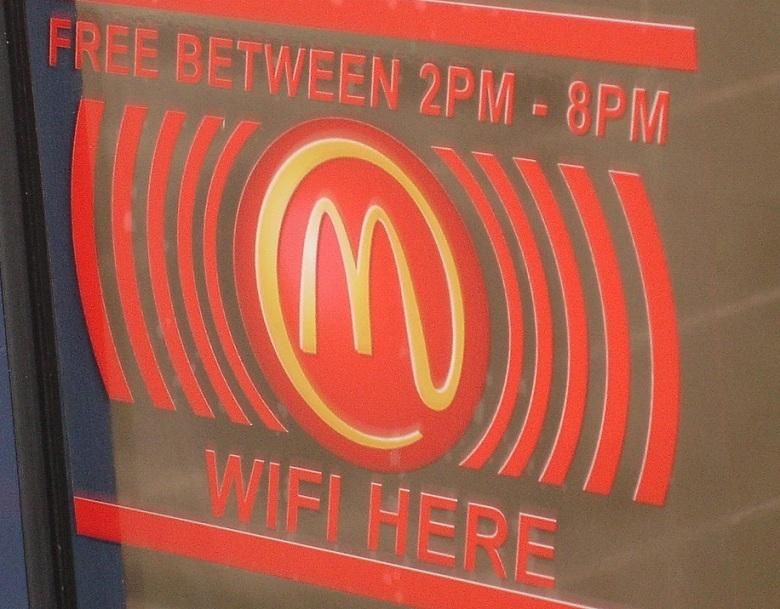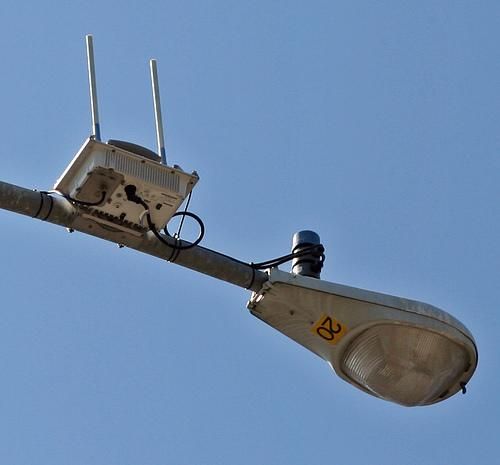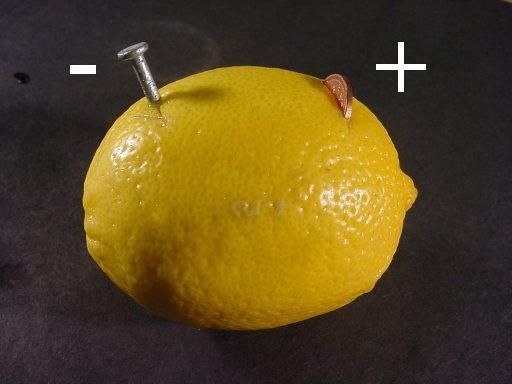With recent polls showing that people use their phones less and less for calling, data is becoming more important than it's ever been. It's no longer the slow EDGE (or even GPRS) experience that some of use may remember from yesteryear. Now we have WiMax, HSPA+, and LTE. All are powerhouses when it comes to speed, some faster than others, that have let us move further away from the computer and more toward our smartphones and tablets for all our data needs.
What about Wi-Fi?
Baby steps down the hall. Baby steps into the elevator…
The question goes back a long, long way: which is better, Wi-Fi or cellular data?
Wi-Fi, or more officially, 802.11 technology, goes back to 1985 when the FCC released the ISM band for unlicensed use. 802.11a and b came along a little while later. Today we most commonly use 802.11b, g, and n for our WLAN connections.
When we think of Wi-Fi we generally think of a home or basic office setup with individual wireless access points. With a stock antenna those might have a range of 32 m (120 ft) indoors and 95 m (300 ft) outdoors. Once we jump up to 802.11n, however, that range can theoretically be doubled. It's still not going to cover you from your house to your school, your job, or that sporting event this weekend. Well, not most of the time.
Additionally, unless a "mesh" has been been deployed, you're pretty much limited to those distances, then your signal falls away. Interestingly, with my HAM Radio license, I'm permitted to modify my WAPs. I can use bigger antennae, I can amplify the signal, I can use more power to throw the signal further. Unfortunately, only other HAMs can connect to this network under FCC regulations, but it's interesting to note that Wi-Fi can do more, with the right equipment and the right license.
You can stay out and play until the street lights come on.
HAM Radio notwithstanding, most schools have campus-wide Wi-Fi. Many employers do too. Even some cities are getting municipal Wi-Fi built into light poles, pay-phone booths, or other structures. Unfortunately, these "islands of connectivity" aren't ubiquitous.
Most people think that municipal Wi-Fi should be "free". I disagree. Just like your sewer services, there is an infrastructure that must be installed, managed, and maintained. Just like the sewer system, with Wi-Fi there are costs involved.
While traveling a while ago, I hopped from Salt Lake International Airport (who didn't have Wi-Fi installed at the time), to San Francisco International, to Denver, Colorado then to Phoenix, Arizona. (There's a funny story behind that strange flight-plan.) The latter three airports had Wi-Fi hotspots. None of them were provided by the same company so I had to buy daily access from three places to stay connected. Unfortunately there's no "roaming" agreement between Wi-Fi hot-spots like there may be between cellular providers.
Coverage considerations: Wi-Fi was a stopgap
At the time, Wi-Fi hotspots felt like a stopgap — a temporary solution to get us by until faster cellular data networks were deployed. That was then, it's with great pride that I can announce, we're living in the future now: we have broadband on our phones!
T-Mobile, my cellular provider has fairly good data coverage (unless I stray too far away from populated areas). Their data speeds are pretty good: 3-5Mbps down, and about half that speed up. The signal is reliable, the speeds are fairly consistent, and HSPA+ is fairly gentle on my battery.
Speed considerations: Cellular isn't slow anymore
Gary the Snail: “Meow”
I recently had the opportunity to review the Verizon version of the Samsung Galaxy S III, which includes big red's flavor or LTE. That phone clocked 20Mbps down all the time, and was regularly clocking well into the 30Mbps range. Coverage was great. I was connected to LTE 90% of the time. The cellular speeds were faster than connecting to the cable Internet at my home over 802.11n.
Yes, folks, cellular was faster than my cable Internet.
Battery Life: How long can you surf?
It’s tasty, and can power your smartphone (if you have enough of them)
In my experiments, battery life suffered when connected to and using LTE as compared to using HSPA+. Sometimes my usable time on the phone was reduced to only 4 to 6 hours (depending on use) compared almost double that on HSPA+.
When connected to my home Wi-Fi, where I have a good signal everywhere, my battery life does just fine. Honestly, I forget about the battery because it's not an issue when I'm at home.
Why is Wi-Fi so much nicer on your battery than cellular? It's not. I can hear you saying "Wait, what? Joe, you just said the opposite of that!", and you're right. I did.
Generally speaking, in practical use Wi-Fi isn't any more or less friendly on your battery than cellular is. Sure there are differences, but the biggest one of all is distance. Since you're probably a good-deal closer to your Wi-Fi WAP than you are to your cellular tower, it's likely that your battery life will be better if you're using Wi-Fi rather than cellular data.
Unfortunately, this breaks down the further you are from your Wi-Fi "tower", and why municipal Wi-Fi may not be as great as it sounds.
Connection Stability: Speed isn't any good if it's not stable
As stable as a tower of wooden blocks
Something else I noticed when connected to the various hot-spots at the airports: even though my signal strength was great (most of the time), the throughput was almost always really crappy sub-par. Why? Two reasons: the speed of the Internet pipe supplying the hot-spot, and the number of people connected to the network.
Think of it this way, if the diameter of the pipe from the city water tower to the city is too small, everyone is going to suffer. Additionally, if everyone takes a shower at the same time, again, everyone is going to suffer. Cellular seems to be doing a better job of load balancing and supplying enough speed to the towers. Municipal and other distributed Wi-Fi aren't doing as well.
Which is better?
“Fool me twice, and you can’t get fooled again.”
With so many variables, determining which is "better" might be possible in a laboratory setting. In the real-world, things aren't so cut and dry. The best answer may simply be "whichever works best for you".
I'd like to know which works best for you, cellular or Wi-Fi, and why. Tell us about your connection (home, municipal, campus, HSPA+, LTE, etc.) and how that impacts your battery and speed.







